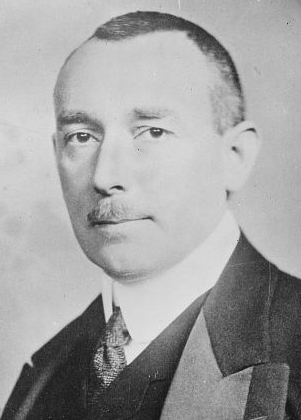|
Günther Jacoby
Friedrich Günther Jacoby (21 April 1881 – 4 January 1969) was a German theologian and philosopher. Life Born in Königsberg, Jacoby studied Protestantism#Theology, Protestant theology there from 1900 to 1903. He acquired the Licentiate (degree), licentiate degree with a text interpretation of the Biblical book of Jeremiah. After the state examination for the higher school service in religion, Hebrew and German, which he passed in 1904, he studied philosophy in East Prussia and Berlin while working as an assistant teacher and received his doctorate in 1906 under Friedrich Paulsen with the work ''Herders "Kalligone" und ihre Verhältnis zu Kants "Kritik der Urteilskraft"''. Two years as an exchange teacher in Paris and Glasgow followed and in 1908 a failed habilitation attempt in Münster. Finally Jacoby habilitated 1909 in Greifswald with his book ''Herders und Kants Ästhetik'' published two years before and based on his dissertation as well as the manuscript ''Die Philosophie ... [...More Info...] [...Related Items...] OR: [Wikipedia] [Google] [Baidu] |
Iron Cross
The Iron Cross (, , abbreviated EK) was a military decoration in the Kingdom of Prussia, the German Empire (1871–1918), and Nazi Germany (1933–1945). The design, a black cross pattée with a white or silver outline, was derived from the insignia of the medieval Teutonic Order and borne by its knights from the 13th century. As well as being a military medal, it has also been used as an emblem by the Prussian Army, the Imperial German Army, and the of the Weimar Republic, while the ''Balkenkreuz'' (bar cross) variant was used by the ''Wehrmacht''. The Iron Cross is now the emblem of the , the modern German armed forces. King Frederick William III of Prussia established the Iron Cross award on 17 March 1813 during the Napoleonic Wars (EK 1813). The award was backdated to the birthday (10 March) of his late wife, Louise of Mecklenburg-Strelitz, Queen Louise, who was the first person to receive it (posthumously). The Iron Cross was also awarded during the Franco-Prussian War ( ... [...More Info...] [...Related Items...] OR: [Wikipedia] [Google] [Baidu] |
WorldCat
WorldCat is a union catalog that itemizes the collections of tens of thousands of institutions (mostly libraries), in many countries, that are current or past members of the OCLC global cooperative. It is operated by OCLC, Inc. Many of the OCLC member libraries collectively maintain WorldCat's database, the world's largest bibliographic database. The database includes other information sources in addition to member library collections. OCLC makes WorldCat itself available free to libraries, but the catalog is the foundation for other subscription OCLC services (such as resource sharing and collection management). WorldCat is used by librarians for cataloging and research and by the general public. , WorldCat contained over 540 million bibliographic records in 483 languages, representing over 3 billion physical and digital library assets, and the WorldCat persons dataset ( mined from WorldCat) included over 100 million people. History OCLC was founded in 1967 under the leade ... [...More Info...] [...Related Items...] OR: [Wikipedia] [Google] [Baidu] |
Logic
Logic is the study of correct reasoning. It includes both formal and informal logic. Formal logic is the study of deductively valid inferences or logical truths. It examines how conclusions follow from premises based on the structure of arguments alone, independent of their topic and content. Informal logic is associated with informal fallacies, critical thinking, and argumentation theory. Informal logic examines arguments expressed in natural language whereas formal logic uses formal language. When used as a countable noun, the term "a logic" refers to a specific logical formal system that articulates a proof system. Logic plays a central role in many fields, such as philosophy, mathematics, computer science, and linguistics. Logic studies arguments, which consist of a set of premises that leads to a conclusion. An example is the argument from the premises "it's Sunday" and "if it's Sunday then I don't have to work" leading to the conclusion "I don't have to wor ... [...More Info...] [...Related Items...] OR: [Wikipedia] [Google] [Baidu] |
World View
A worldview (also world-view) or is said to be the fundamental cognitive orientation of an individual or society encompassing the whole of the individual's or society's knowledge, culture, and point of view. However, when two parties view the same real world phenomenon, their world views may differ, one including elements that the other does not. A worldview can include natural philosophy; fundamental, existential, and normative postulates; or themes, values, emotions, and ethics. Etymology The term ''worldview'' is a calque of the German word , composed of ('world') and ('perception' or 'view'). The German word is also used in English. It is a concept fundamental to German philosophy, especially epistemology and refers to a ''wide world perception''. Additionally, it refers to the framework of ideas and beliefs forming a global description through which an individual, group or culture watches and interprets the world and interacts with it as a social reality. and cogni ... [...More Info...] [...Related Items...] OR: [Wikipedia] [Google] [Baidu] |
Neo-Kantianism
In late modern philosophy, neo-Kantianism () was a revival of the 18th-century philosophy of Immanuel Kant. The neo-Kantians sought to develop and clarify Kant's theories, particularly his concept of the thing-in-itself and his moral philosophy. Origins The "back to Kant" movement began in the 1860s, as a reaction to the German materialist controversy in the 1850s. In addition to the work of Hermann von Helmholtz and Eduard Zeller, early fruits of the movement were Kuno Fischer's works on Kant and Friedrich Albert Lange's ''History of Materialism'' ('' Geschichte des Materialismus'', 1873–75), the latter of which argued that transcendental idealism superseded the historic struggle between material idealism and mechanistic materialism. Fischer was earlier involved in a dispute with the Aristotelian idealist Friedrich Adolf Trendelenburg concerning the interpretation of the results of the Transcendental Aesthetic, a dispute that prompted Hermann Cohen's 1871 seminal w ... [...More Info...] [...Related Items...] OR: [Wikipedia] [Google] [Baidu] |
Critical Realism (philosophy Of Perception)
In the philosophy of perception, critical realism is the theory that some of our sense-data (for example, those of primary qualities) can and do accurately represent external objects, properties, and events, while other of our sense-data (for example, those of secondary qualities and perceptual illusions) do not accurately represent any external objects, properties, and events. Put simply, critical realism highlights a mind-dependent aspect of the world that reaches to understand (and comes to an understanding of) the mind-independent world. Some precursors Locke According to John Locke, Locke—following a tradition which can be traced back to the ancient (Democritus) and modern (Galileo Galilei, Isaac Newton) atomism—some sense-data, namely the sense-data of secondary qualities (i.e. colours, tastes, smells, sounds), do not represent anything in the external world, even if they are caused by external qualities (primary qualities). By its talk of sense-data and representation, ... [...More Info...] [...Related Items...] OR: [Wikipedia] [Google] [Baidu] |
Ontology
Ontology is the philosophical study of existence, being. It is traditionally understood as the subdiscipline of metaphysics focused on the most general features of reality. As one of the most fundamental concepts, being encompasses all of reality and every entity within it. To articulate the basic structure of being, ontology examines the commonalities among all things and investigates their classification into basic types, such as the Theory of categories, categories of particulars and Universal (metaphysics), universals. Particulars are unique, non-repeatable entities, such as the person Socrates, whereas universals are general, repeatable entities, like the color ''green''. Another distinction exists between Abstract and concrete, concrete objects existing in space and time, such as a tree, and abstract objects existing outside space and time, like the number 7. Systems of categories aim to provide a comprehensive inventory of reality by employing categories such as Substance t ... [...More Info...] [...Related Items...] OR: [Wikipedia] [Google] [Baidu] |
Nicolai Hartmann
Paul Nicolai Hartmann (; 20 February 1882 – 9 October 1950) was a German philosopher. He is regarded as a key representative of critical realism and as one of the most important twentieth-century metaphysicians. Biography Hartmann was born a Baltic German in Riga, which was then the capital of the Governorate of Livonia in the Russian Empire, and which is now in Latvia. He was the son of the engineer Carl August Hartmann and his wife Helene, born Hackmann. He attended from 1897 the German-language high school in Saint Petersburg. In the years 1902–1903 he studied Medicine at the University of Yuryev (now Tartu), and 1903–1905 classical philology and philosophy at the Saint Petersburg Imperial University with his friend Vasily Sesemann. In 1905 he went to the University of Marburg, where he studied with the neo-Kantians Hermann Cohen and Paul Natorp. In Marburg began a lifelong friendship with Heinz Heimsoeth. In 1907 he received his doctorate with the thesis ''Da ... [...More Info...] [...Related Items...] OR: [Wikipedia] [Google] [Baidu] |
University Library Of Tübingen
The University Library of Tübingen (; ''UB Tübingen'') is the main library of the University of Tübingen, one of the biggest and most renowned universities in Baden-Württemberg, Germany. The people who worked for the ''University Library of Tübingen'' include Hermann Kurz, Adelbert von Keller, Robert von Mohl and Rudolf von Roth. After the foundation of the university in 1477, the library was located at the so-called ''Sapienzhaus'', later it was moved to the ''Alte Aula'', the former main building of the university, then to Hohentübingen Castle (all of those in the Altstadt, old town (''Altstadt'') of Tübingen). The oldest building of the library at its current location (officially part of the town's architectural cultural heritage) was completed in 1912; the architect was Paul Bonatz. Large buildings were adjacently added in 1963 (the current main building), 1989 (''Alte Waschhalle'', renovated, formerly "old laundry hall" of the university) and 2003 (''Ammerbau''). The ... [...More Info...] [...Related Items...] OR: [Wikipedia] [Google] [Baidu] |
German National People's Party
The German National People's Party (, DNVP) was a national-conservative and German monarchy, monarchist political party in Germany during the Weimar Republic. Before the rise of the Nazi Party, it was the major nationalist party in Weimar Germany. It was an alliance of Conservatism in Germany, conservative, German nationalism, nationalist, monarchist, , and antisemitic elements supported by the Pan-German League. Ideologically, the party was described as subscribing to authoritarian conservatism, German nationalism, and monarchism. Until 1931, the party also advocated for National liberalism, national liberal and Protectionism, protectionist economic policies, embracing corporatism, corporatist economic policies from 1931 onwards. Some members like the populist media mogul Alfred Hugenberg embraced Economic nationalism, economic nationalism and Statism, statism. Under Hugenberg the party is seen by some as a ''German Tory conservatism, Tory conservative'' party. It held anti-commu ... [...More Info...] [...Related Items...] OR: [Wikipedia] [Google] [Baidu] |
Weimar Republic
The Weimar Republic, officially known as the German Reich, was the German Reich, German state from 1918 to 1933, during which it was a constitutional republic for the first time in history; hence it is also referred to, and unofficially proclaimed itself, as the German Republic. The period's informal name is derived from the city of Weimar, which hosted the constituent assembly that established its government. In English, the republic was usually simply called "Germany", with "Weimar Republic" (a term introduced by Adolf Hitler in 1929) not commonly used until the 1930s. The Weimar Republic had a semi-presidential system. Toward the end of the First World War (1914–1918), Germany was exhausted and suing for peace, sued for peace in desperate circumstances. Awareness of imminent defeat sparked a German Revolution of 1918–1919, revolution, Abdication of Wilhelm II, the abdication of Kaiser Wilhelm II, the proclamation of the Weimar Republic on 9 November 1918, and formal cessa ... [...More Info...] [...Related Items...] OR: [Wikipedia] [Google] [Baidu] |



